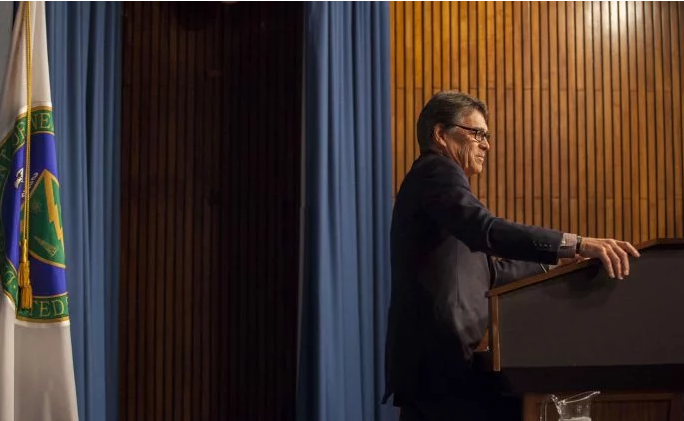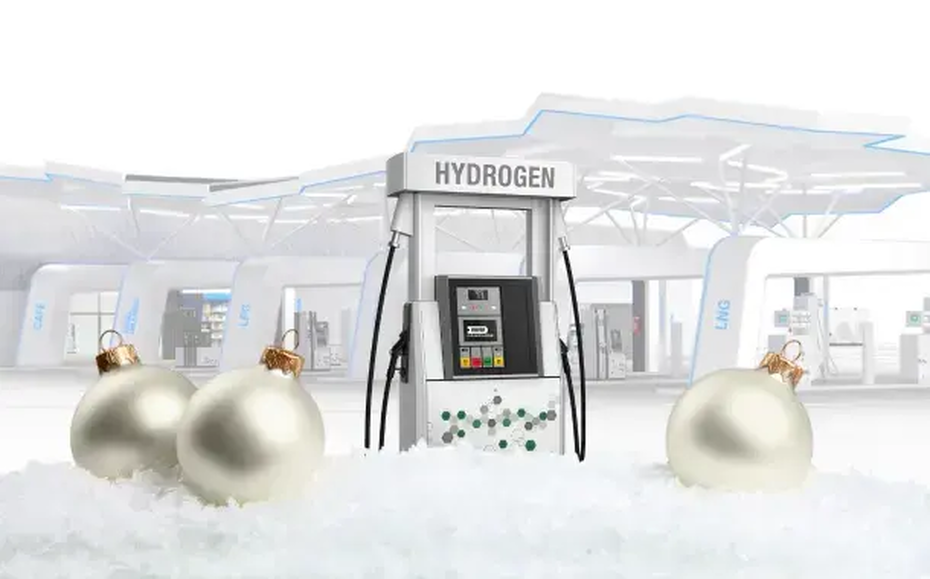Trump confirmed Perry’s resignation during a Thursday evening visit to a Louis Vuitton workshop in Alvarado, Texas, according to news reports. Trump said he intends to name Perry’s replacement at a Thursday night re-election rally in Dallas.
 President Donald Trump confirmed Perry’s resignation during a Thursday visit to a Louis Vuitton workshop in Texas.
President Donald Trump confirmed Perry’s resignation during a Thursday visit to a Louis Vuitton workshop in Texas.
The resignation comes one day after Perry declined to say if he would comply with last week’s subpoena from House Democrats, seeking documents related to his knowledge of the June 25 phone call between Trump and Ukraine President Volodymyr Zelenskiy that sparked the impeachment inquiry.
It also comes one day after Perry gave his first interview since his name appeared in a House subpoena directed at Trump’s private attorney Rudy Guiliani, a central figure in the Ukraine scandal. That subpoena sought information on the former Texas governor’s time leading the U.S. delegation to Zelenskiy's inauguration in May, as well as other interactions with Ukrainian leaders.
In the interview with the Wall Street Journal, Perry said that Trump directed him to make his initial call to Giuliani on issues of “corruption” in Ukraine. But Perry also claimed he never heard Trump, Giuliani, or officials of either government discuss the Trump administration’s efforts to tie the release of held-up U.S. military aid to an investigation into Democratic presidential candidate Joe Biden and his son Hunter Biden.
Perry also denied reports that he was leaving. But when asked if he would be staying past Thanksgiving, he replied, "I don't know. I'm working at the will of the President, just like I always have,” the WSJ reported.
Perry’s role at DOE has been less controversial than those of fellow cabinet members such as EPA Administrator Scott Pruitt and Interior Secretary Ryan Zinke, who resigned under clouds of scandal. He has supported several initiatives with broad support, such as improving power sector cybersecurity in the wake of revelations of Russian hackers compromising key power plant systems.
But compared to predecessors such as physicists Steven Chu and Ernest Moniz, the Texas Republican with ties to the U.S. fossil fuel industry was seen by many as a poor choice to lead an agency tasked with maintaining the U.S. nuclear arsenal and investing billions of dollars into advanced energy research.
Perry’s most controversial effort to intervene in U.S. energy policy on behalf of the fossil fuel industry was a failure, however. In 2017, after meeting with key Trump campaign backer and coal company CEO Robert Murray, Perry unveiled a DOE proposal asking federal regulators to force utilities and customers to buy electricity from money-losing coal and nuclear plants that can store at least 90 days of fuel on site, on the grounds that allowing them to close would threaten grid reliability.
The Federal Energy Regulatory Commission unanimously rejected the proposal in early 2018. Soon after, reports surfaced that DOE was seeking to use a federal law regarding emergency wartime industrial production to force through a similar policy. But that effort, never officially acknowledged by DOE, was shelved late last year, according to reports.
During his failed 2016 presidential campaign, Perry famously forgot the name of DOE as the third federal department on a list of those he would abolish if elected. And the New York Times reported in 2017 that Perry unaware that DOE was in charge of U.S. nuclear weapons before he was nominated to lead it.
Perry presided over a DOE that enjoyed bipartisan support for many of its key programs, particularly from members of Congress from states that house the agency’s national laboratories. While the Trump administration has proposed budgets that would have slashed funding for DOE’s labs, the ARPA-E research program and other key energy research initiatives, Congress has actually increased funding for these efforts over the past two years, including 2018’s $3.77 billion boost in funding, bringing the agency’s budget to a total of $34.5 billion.







